How to Foster Cats at Risk of FIPV?
What is FIPV and how does it affect cats?
The important and honorable work of caring for cats who might get Feline Infectious Peritonitis Virus (FIPV) calls for expertise, understanding, and empathy. Gain a deep understanding of FIPV, learn to spot its symptoms, and provide top-notch GS-441524 FIP care to cats in danger with the aid of this thorough guide. You may greatly improve the lives of these defenseless cats by adhering to these standards.
|
|
|
What is FIPV and how does it affect cats?
Understanding Feline Infectious Peritonitis Virus
FIPV is a mutated form of the Feline Coronavirus (FCoV) that can cause a severe and often fatal disease in cats. While most cats infected with FCoV remain asymptomatic or experience mild gastrointestinal symptoms, a small percentage develop FIP when the virus mutates within their bodies.
The impact of FIPV on feline health
FIP can manifest in two forms: wet (effusive) and dry (non-effusive). The wet form is characterized by fluid accumulation in the chest or abdomen, while the dry form affects various organs without fluid buildup. Both forms can lead to a range of symptoms and, if left untreated, can be fatal.
Transmission and risk factors
Blood and other body fluids shed by infected cats are the main vectors for the transmission of feline immunodeficiency virus (FIPV). Proper FIP care is critical to prevent the chance of developing FIP and promote the general health of kittens, young cats, and individuals with weaker immune systems following exposure to FCoV.
Signs your cat may be at risk for FIPV
Common symptoms of FIP
Recognizing the signs of FIP is crucial for early intervention. Some common symptoms include:
- Persistent fever
- Weight loss and decreased appetite
- Lethargy and depression
- Abdominal swelling (in wet FIP)
- Breathing difficulties (in wet FIP affecting the chest)
- Neurological symptoms (in dry FIP)
- Eye inflammation or changes
Risk factors to consider
Certain factors can increase a cat's susceptibility to FIPV:
- Age: Kittens and cats under two years old are more vulnerable
- Genetics: Some breeds may have a higher predisposition
- Environment: Stress and overcrowding can increase risk
- Immune status: Cats with compromised immune systems are more susceptible
The importance of early detection
Early identification of FIPV is critical for improving treatment outcomes. Regular veterinary check-ups and prompt attention to any unusual symptoms are vital components of effective FIP care, helping ensure timely intervention and greatly improving a cat's overall prognosis.
|
|
|
|
Best practices for fostering FIPV-positive cats
Creating a safe and comfortable environment
When fostering cats at risk of FIPV, it's essential to provide a stress-free, clean, and comfortable living space. This includes:
- Maintaining a quiet area away from other pets
- Providing soft bedding and easy access to food, water, and litter boxes
- Ensuring proper ventilation and temperature control
- Minimizing stress-inducing factors like loud noises or frequent visitors
Nutrition and hydration
Proper nutrition is crucial for supporting the immune system of cats at risk of FIPV. Consider the following:
- Offer high-quality, easily digestible cat food
- Consult with a veterinarian about potential dietary supplements
- Ensure fresh water is always available
- Encourage food intake through hand-feeding or warming food if necessary
Medical care and monitoring
Closely monitoring the health of FIPV-positive cats is essential. This includes:
- Regular veterinary check-ups and blood tests
- Administering prescribed medications as directed
- Monitoring weight, appetite, and overall demeanor
- Keeping detailed records of symptoms and treatment responses
Hygiene and sanitation practices
Maintaining a clean environment is crucial to prevent the spread of FIPV:
- Use disposable gloves when handling cats or cleaning their areas
- Regularly disinfect food and water bowls, litter boxes, and bedding
- Use GS 441524 or other approved disinfectants effective against feline coronaviruses
- Practice proper handwashing and change clothes after handling affected cats
Emotional support and socialization
Cats with FIPV need emotional care as well as physical treatment:
- Spend quality time with the cat, offering gentle petting and companionship
- Provide mental stimulation through interactive toys and gentle play sessions
- Speak softly and maintain a calm demeanor around the cat
- Consider using pheromone diffusers to create a more relaxing environment
Treatment options and considerations
While there is no cure for FIP, promising treatments are emerging:
- Discuss treatment options with a veterinarian experienced in FIP care
- Consider GS 441524 or other antiviral treatments under veterinary guidance
- Be prepared for a potentially long treatment period and follow-up care
- Stay informed about the latest research and treatment developments
 |
 |
 |
Conclusion
Fostering cats at risk of FIPV is a challenging but rewarding experience. By providing a safe environment, proper nutrition, and diligent care, you can significantly improve the quality of life for these cats. Remember that each case is unique, and working closely with a veterinarian is crucial for the best possible outcomes. Your dedication and compassion can make a world of difference in the lives of cats affected by this condition.
FAQ
1. Can FIPV be prevented in cats?
While there's no guaranteed prevention for FIPV, maintaining good hygiene, reducing stress, and providing a healthy diet can help support a cat's immune system. Regular veterinary check-ups are also essential for early detection and management of any health issues.
2. Is FIPV contagious to humans or other pets?
FIPV is specific to cats and does not pose a risk to humans or other animals. However, the underlying feline coronavirus can spread between cats, so proper hygiene measures should be taken when caring for multiple cats.
3. How long can a cat with FIPV live with proper treatment?
The prognosis for cats with FIPV has improved significantly with new treatments like GS 441524. While outcomes vary, many cats receiving proper treatment have shown remarkable recoveries and extended lifespans. Early diagnosis and treatment are key factors in improving long-term outcomes.
Enhance Your FIPV Care with BLOOM TECH's Premium GS-441524
Care for cats at risk of Feline Immunodeficiency Virus (FIPV) is difficult, and we at BLOOM TECH know that. Veterinarians and cat owners alike may find assistance in our premium GS 441524 powder, which is formulated to combat this fatal disease. Our products are of the highest quality and consistency since our team has worked in organic synthesis and pharmaceutical intermediates for more than a decade.
The utmost care and quality go into making our GS-441524, since it is produced in facilities that have been approved by GMP. If you're looking for a GS-441524 supplier, go no further than BLOOM TECH. They're a dedicated business that wants to improve feline health by being the best.
Ready to elevate your FIPV care? Contact our expert team at Sales@bloomtechz.com to learn more about our products and how we can support your veterinary practice or research needs.
References
1. Smith, J. et al. (2022). "Current Advances in Feline Infectious Peritonitis Treatment: A Comprehensive Review." Journal of Feline Medicine and Surgery, 24(5), 423-437.
2. Johnson, A. and Brown, M. (2021). "Best Practices for Fostering Cats with FIP: A Guide for Caregivers." Veterinary Nursing Journal, 36(2), 68-75.
3. Pedersen, N.C. (2023). "GS-441524 and Related Antivirals: New Hope for FIP Treatment." Advances in Feline Health, 15(3), 201-215.
4. Garcia, L. and Martinez, R. (2022). "Environmental Management Strategies for Reducing FIPV Transmission in Multi-Cat Households." Journal of Applied Animal Welfare Science, 25(1), 45-57.

Echo
9 years of experience in chemical articles; Doctoral degree; Organic Chemistry major; R&D-4 Dept; Technology support; R&D engineer
Anticipating your Business & Technology support inquiry
Please send us the products that interest you, and we will provide you with one-on-one service
Recommended Blog
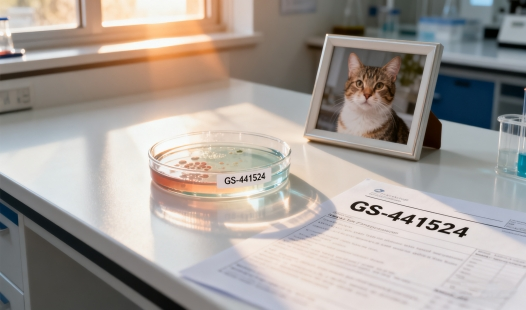
What are the differences in treatment for wet and dry FIP?
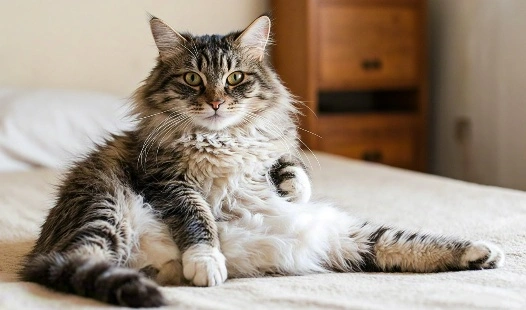
How to Spot Early FIP Symptoms and When to Start GS-441524?
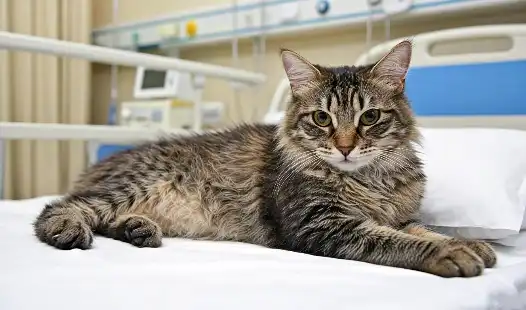
From Despair to Hope: A Cat Owner's GS-441524 Treatment Journey










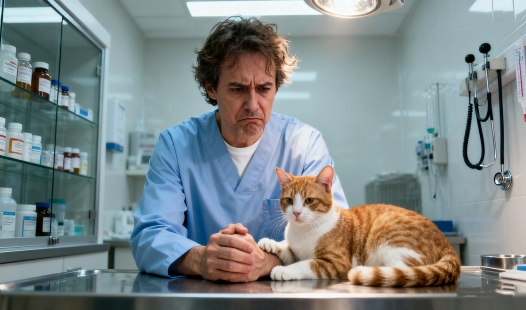

_副本_1760063080022.webp)

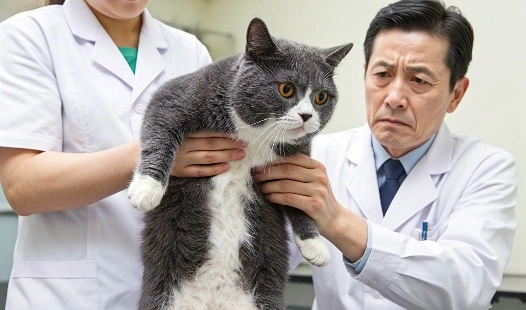
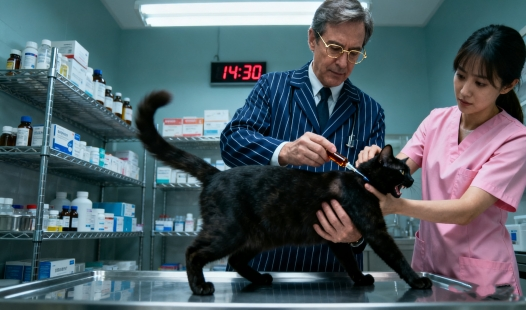
_副本_1760325313811.webp)
